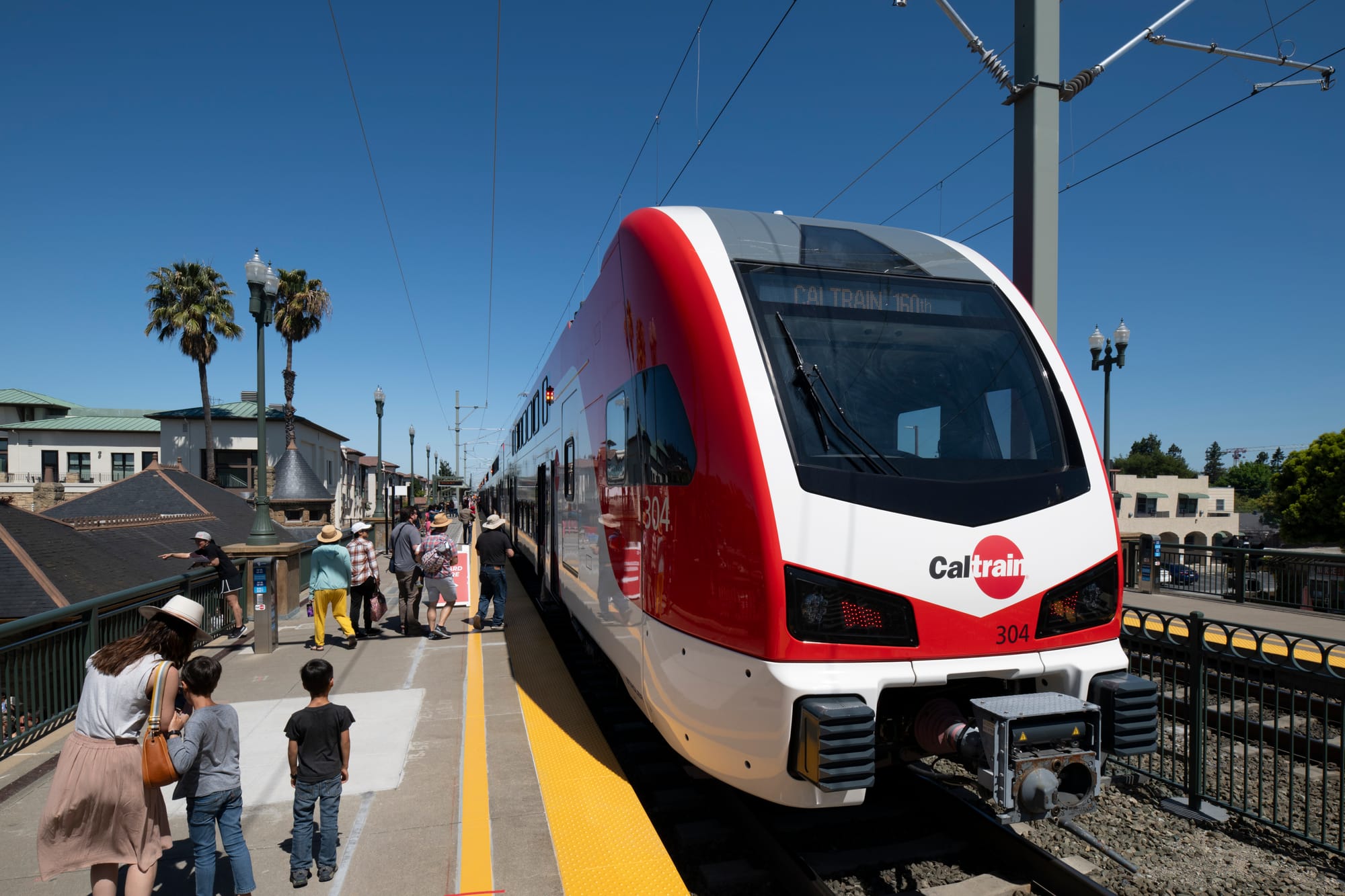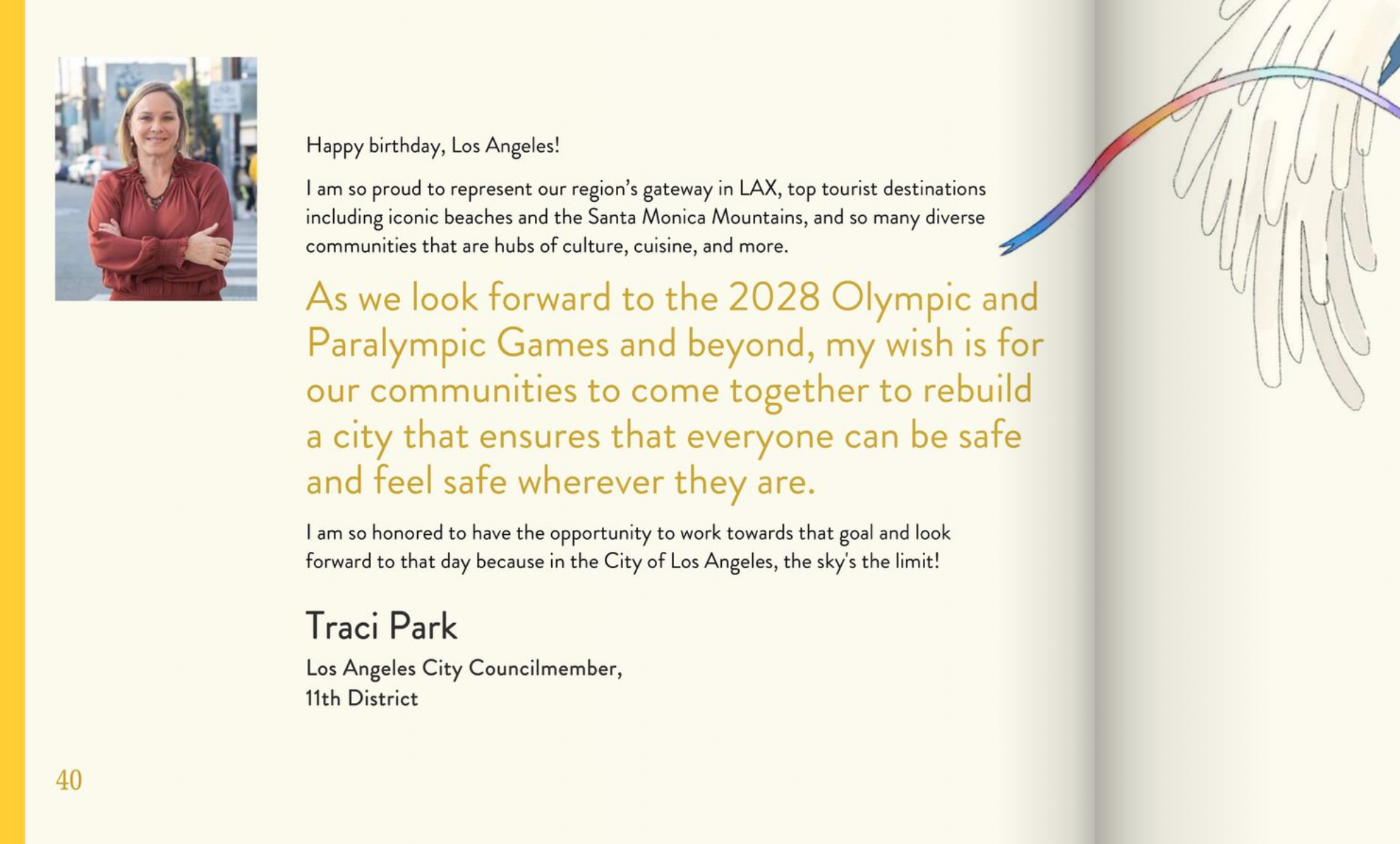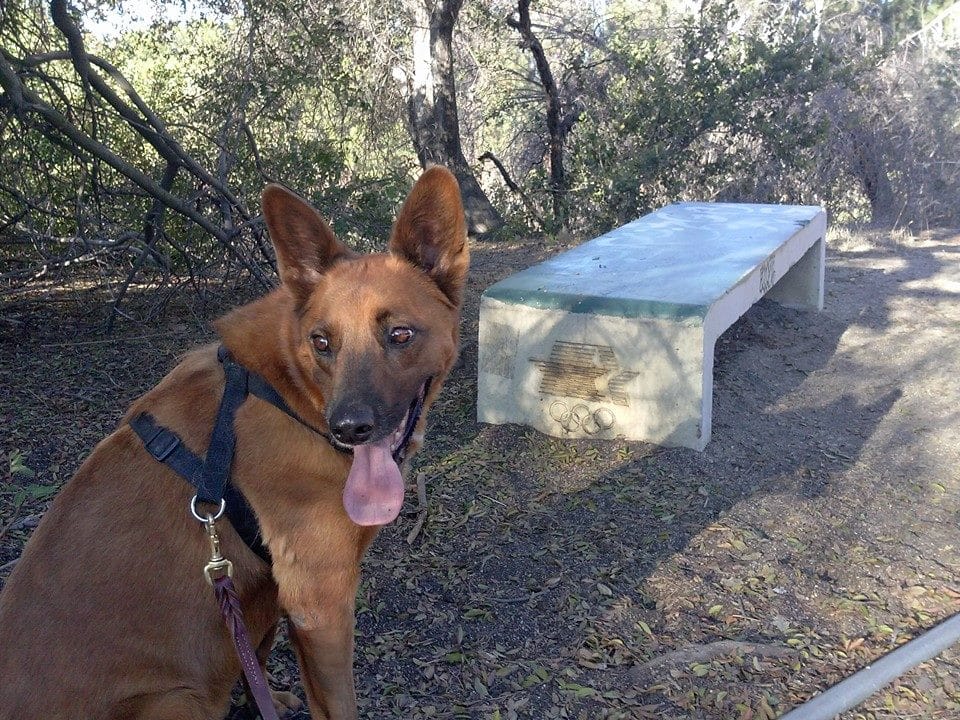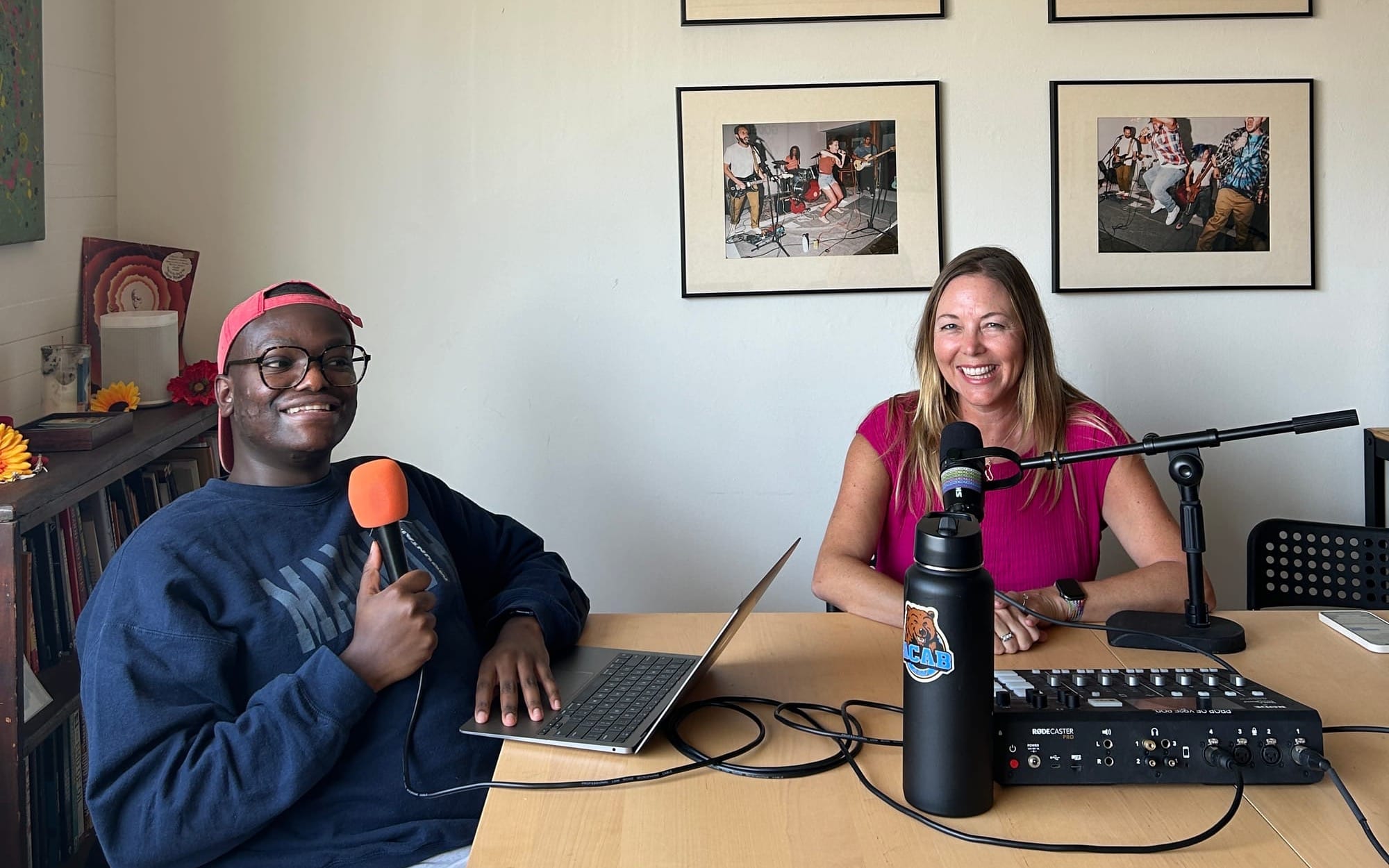Empty stadiums, travel bans, and ICE raids
"If you want to come to the U.S. games, just know that they may harass you depending where you're from and depending on what you look like"
It's less like a football game and more like a major earthquake

Since I started this newsletter I've played a fun little game in my head when I'm walking the streets of Los Angeles. I look around at what's happening and I ask myself: okay, what if the Olympics were happening today?
And what's happening today? Ouch.
As I hit publish, daily high records — many set exactly four years ago on September 6, 2020 — are shattering. These are the current temperatures at some places across LA County I've chosen completely at random. Crypto.com Arena: 99. SoFi Stadium: 90. The Rose Bowl: 107. The Sepulveda Basin: 111.
The closing ceremony for the Paralympics happens in Paris on Sunday, bringing the 2024 games to an end. But if the games were happening here, when it's forecasted to be 100 at the Coliseum, would we have to cancel the ceremony?
In 2028, our Olympics will run July 14 to July 30 and Paralympics August 15 to August 27. (Paris has a bigger gap between the Olympics and Paralympics.) But if we were hosting the Olympics in LA right now, this is what we would be dealing with just today:
And that's a relatively quiet summer around here. If the Olympics were held in LA last year, we would have had a hurricane barreling towards us during the Paralympics opening ceremonies. In 2020, we had both record-breaking heat and multiple local fires triggering evacuations, toxic particulate pollution, and Blade Runner-orange skies. With summers getting hotter, any of those scenarios could easily happen again in 2028. It's one of the reasons that the LA County Fair, which would have been kicking off this past weekend, moved to drizzly May.
But the Olympics themselves are a disaster. That's not my commentary on the execution of the event itself. I mean that, logistically, producing "seven Super Bowls a day" is basically managing an emergency. (And probably why LA28 now has an ex-FEMA general running the show.) Describing the impact to transportation networks and logistical chains in increments of Super Bowls might be more relatable to sports fans, but it's a metaphor that infers all the action will be happening in one place. This megaevent will have its impacts distributed unevenly across the region. It's less like a football game and more like a major earthquake. And then, of course, there is also the very good chance of a major earthquake.
I was thinking about all of this when that South Pasadena-epicentered rattler (not the small and fun one, the medium-ish and kind of scary one) struck a few weeks ago on the first day of school. The entire region will already be in emergency mode. Now layer an actual emergency on top. Should we make every tourist download the earthquake early warning app when they land at LAX? What about making sure people have access to air quality alerts to tell them when to stay inside? How do evacuation plans change when millions more people are moving around the city? What happens when the grid fails? Summer is already LA's season of disasters. We'll be lucky if we only have one. 🔥

Caltrain launched its electric train — the first in the state! — and it's so quiet and classy, this is one time I think "demure" actually works. The very exciting milestone sent Californians for Electric Rail circulating a petition that calls for an electrification plan from Metrolink, which has the impressive SCORE capital improvement program for 2028, yet no plans to electrify. But here's how Metrolink could do it. Meanwhile, there's a 10-year plan in progress to electrify LA's cars, buses, and trucks before the "zero-emission" Olympics, but — surprise — it needs more money, although the federal government recently gave LA some money for EV charging stations.
Will our high-speed Vegas train really be done by 2028? Brightline CEO Mike Reininger says yes: "Think about the idea of the Los Angeles Olympics having venues shared and hotel rooms shared between the Los Angeles metropolitan area and the Las Vegas metropolitan area. Imagine watching a game at Allegiant Stadium and getting on a train and going and watching another event in Southern California, in the same day. It will be a remarkable showcase." I mean, you could already easily do that on a Southwest flight, but I like the energy here, Mike! Also — is he trying to tell us there will be LA28 venues in Vegas?
Hey, I'm not walking here! When Steve Lopez wasn't writing about Langer's he was cranking out bangers on LA's broken sidewalk policy. First, a very good survey of just how much worse the problem has gotten in recent years, and a follow up which concludes that repair requests are currently quoted a wait time of 10 years — TEN! YEARS! — just to get a sidewalk fixed. But there is some movement, including a long-overdue citywide assessment of sidewalk conditions. If you're interested in shaping that assessment, take this survey to tell public works what to prioritize.
Intuit Dome VIPs can drink until 4 a.m. if a state bill passes the California legislature. Now who would sponsor such an oddly specific bill? Steve Ballmer, the owner of Intuit Dome, who also has a bill before the legislature to use facial-recognition to verify drinking age. (What could go wrong?) Sean McMorris at California Common Cause calls AB-3206 a "niche bill that benefits really one billionaire" and "exemplifies the disproportionate influence of wealthy individuals and corporations on the legislative process." One might say that's how these stadiums get built in the first place. Guess when the new law would sunset? 2030, just two years after Intuit Dome serves as the LA28 basketball venue.
Can we officially name it flag-gate yet? Korean and Japanese cultural leaders held a press conference demanding the city return the gifts that were displaced to the convention center at a cost of $500,000 so the Olympic flag could reside in City Hall. Meanwhile, chief deputy controller Rick Cole took to Tik Tok to explain what LA could have spent the half-mil on instead. Mayor Karen Bass is currently in Paris and heading back to LA with the Paralympic flag on Monday. Wait, does it need its own $500,000 display case?

LA had a birthday this week and LA2050 put together a nice little book featuring local leaders wishing the city a happy 243rd. It's all very inspirational and heartwarming. And then you get to page 40. Now I'm the first to say when things are bad, but "rebuild a city" seems a little... extreme?
But maybe she's right. Councilwoman Traci Park chairs the council's Olympics committee. She's also on the transportation committee, the tourism committee, and the budget committee. If rebuilding LA to be safe and feel safe is on her mind, surely she's talking about preventing the deaths of people killed by speeding vehicles, which, last year, outnumbered homicides. Luckily, we know how to address that problem: by widening sidewalks, improving crosswalks, and building protected bike lanes — amazingly, all things that Park has control over in her many council roles.
Park, who spent time in Paris during the games, even told the Los Angeles Times that she'd like to accelerate sidewalk repairs ahead of the Olympics and build a bike lane network between venues, calling it "absolutely essential to deliver before 2028." Which might sound like she's more concerned about the safety of people coming here in 2028 than the people who use those sidewalks and bike lanes today. But I'm sure that's not the case! Park recently introduced a motion to fast-track the installation of bollards to prevent vehicle rammings "with the city hosting major international events in the next few years." This is such a great idea. We can start by installing them in the place where we know deadly vehicle rammings occur already: what LADOT has described as the high-injury network. The sky's the limit!

Can someone please let the New York Times know that California publications do a much better job reporting on our own corruption than they do? Now, on to the reads...

I had such a great time talking about LA and all things Olympics with Tonny St. James for the incredible Young People to the Front podcast. Listen here, give them a follow on social media, and stay tuned — apparently there's a part 2 coming soon!
Coming up on Monday is the first-ever Torched Talks with Slate's Henry Grabar. Since Henry and I are covering the same microbeat — Olympics minus the sports — we thought it might be interesting to compare notes post-games. And it will be! Join us at noon PT on Zoom.
Also, if you're a paid subscriber, be sure to RSVP for the launch party on September 21. See you then!